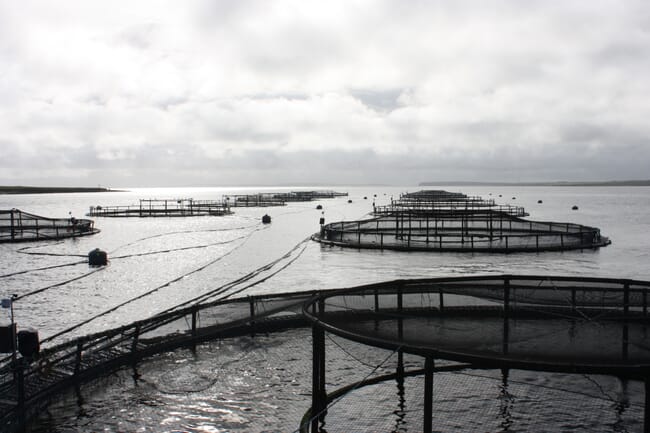
Published today by Holyrood’s Rural Affairs and Islands Committee, some of the committee’s key recommendations in the report include:
Fish mortality
- Powers should be given to the Fish Health Inspectorate (or another appropriate body) to limit or halt production at sites which record persistently high mortality rates. The Scottish Government should work with industry and regulators to agree appropriate criteria and mortality thresholds for the use of these powers. While the committee states that they “seriously considered” calling for a moratorium on new sites, or the expansion at existing sites, they have decided against this, "given the lack of certainty around the impact a moratorium on production would have, especially on those directly employed on farms or living in local communities".
- The Scottish Government has been advised to establish a research project focused on testing and improving the modelling of environmental conditions that are known to cause high mortality events on salmon farms. This should have the effect of providing early warning to industry and inform technological solutions and approaches to husbandry to mitigate high mortality events.
- The publication of comprehensive, consistent and transparent mortality figures that include the number of fish at a farm, the freshwater and seawater mortality, per facility, with accurate numbers of dead salmon, wrasse and lumpsuckers per week and with cumulative mortality totals at the end of each production cycle.
- The Scottish Government should publish an annual fish health report detailing the health and welfare status of all farmed finfish in Scotland.
Environmental impact
- Further research has been called for to address the significant gaps in knowledge, data, analysis and monitoring around the adverse risk of salmon farming on the marine environment, especially around discharges from farm pens and the use of medicines.
- Scottish Government should work with industry and academia to establish dedicated research pens. Industry should contribute to the cost of financing this infrastructure.
- Scottish Government should consider an expedited timetable for the introduction of a revised environmental quality standard for emamectin benzoate, a sea louse treatment sold as Slice, rather than the planned four-year implementation period.
Farmed fish welfare
- The Scottish Government should bring forward additional regulations and official guidance under the Animal Health and Welfare (Scotland) Act 2006 to set specific baseline standards for the welfare of farmed fish.
- The Scottish Government should update the committee in relation to the ethics and welfare implications of the use of cleaner fish to manage sea lice infestations.
Data and transparency
- The Scottish Government should prioritise upgrading and improving the Scotland’s Aquaculture website to make data more accessible and user friendly.
Wild salmon
- The Scottish Government should publish a timetable for implementing the outstanding 42 recommendations of the Salmon Interactions Working Group report as a matter of urgency.
- A memorandum of understanding between SEPA and other relevant bodies should be drawn up to ensure a coordinated approach to managing the impacts of farmed salmon on wild salmon.
- An immediate end to the siting of farms in the close vicinity of known migratory routes for wild salmon.
Planning
- The Scottish Government should address concerns about the slow progress in tackling issues with planning and consenting process, especially regarding relocating existing farms.
- The Scottish Government should ensure that communities share the benefits of salmon farms sited in their locality, through consultation with stakeholders and affected communities.
The covener's conclusion
Speaking at the launch of the report, the convener of the committee, Finlay Carson MSP, said: “We recognise the importance of the salmon farming industry to the Scottish economy and the jobs it supports in many rural and island communities.
“We also realise the efforts made by the industry to invest and innovate to overcome the new and unpredictable challenges it faces.
“But further progress should have been made in implementing the REC Committee’s recommendations of 2018 as well as anticipating the impact of climate change and rising sea temperatures on the industry. This would have helped address some of the polarised views the industry is currently facing in relation to the production process.
“Ultimately, it is the Scottish Government’s role, as well as the industry’s, to drive the change agenda required to allow science, research and the regulatory landscape to keep pace with the rapidly changing marine environment.
“That is why we are calling for the Scottish Government to redouble its focus on regulatory issues to ensure that this industry, which is so important to the Scottish economy, is both future-proofed and enabled to grow sustainably.”




